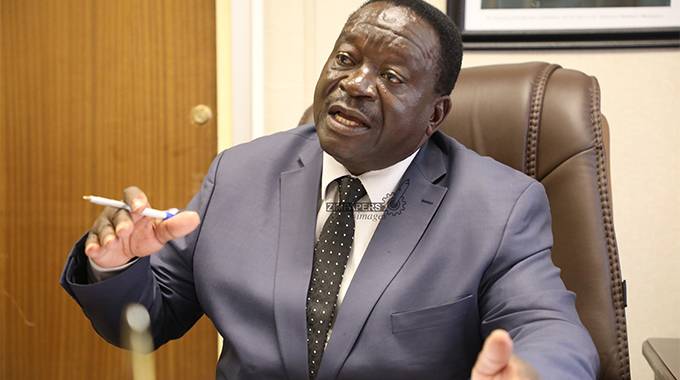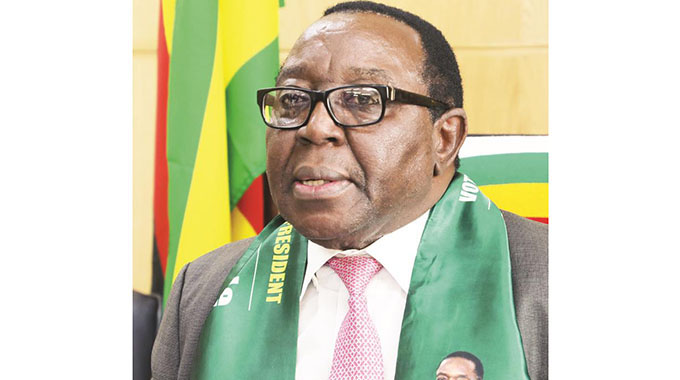DCC election for 8 provinces after congress

Joseph Madzimure Senior Reporter
Zanu-PF will set up District Coordinating Committee (DCC) structures in the remaining eight provinces after the 18th National People’s conference set for Goromonzi High School, Mashonaland East Province, next week.
The party has already put in place DCC structures in Harare and Bulawayo, with the restructuring of the two metropolitan provinces already underway.
Giving an update on the state of the party, secretary for the Commissariat Cde Victor Matemadanda said: “The next move at the moment is focusing on the Annual People’s Conference, and then from there we will get new instructions from the party leadership on how we conduct the DCC elections in other provinces.
“As you know, Harare and Bulawayo had different characteristics from all other provinces in that they have dissolved their executives.
“I haven’t gone back to Bulawayo to see how they are doing, but in Harare they are doing very good work.
“They are mobilising, they are restructuring and I am very confident that the numbers we are going to have in Harare for the party and for future elections are much more than what we have been having all these years.”
Cde Matemadanda said the process of cell-building cannot be completed within a short space of time.
“It’s an ongoing process, things change every day, new people join the party; people transfer everyday so that affects our cell structure so we are continuously updating them.
“A constitutional requirement is that we do the cells every year and the process takes about three months.
“The constitution also provides for branches to be restructured every two years, district every three years, provinces every four years and then central committee every five years then that brings us to congress, which we have every five years,” he said.
Newly-elected DCC members in Bulawayo Province have been tasked to set up party structures from cell level.
“The structures that were being done by the same process in Bulawayo were a bit more intact than those in Harare, so we said after the DCC elections, they must go and fill the gaps and continue to work on cell structures which is a continuous process,” said Cde Matemadanda.
In Bulawayo Area One, Cde Raymond Mtomba won the chairmanship deputised by Cde Nkosana Mkandla, while in Area 2 Cde Paul Mutara won the chairmanship with Cde Ntandeyenkosi Mlilo as the deputy.
Former Njube-Lobengula MP Cde Maidei Mpala won the Area 3 chair and will be deputised by Cde Nkonzo Mhlanga while in Area 4 Cde Obert Msindo was elected chair with Cde Dennis Sibanda his deputy.
Cde Zowa Msika is chairman of Area 5 and is deputised by Cde Khanien Ngwenya.
Cde Matemadanda said the party’s DCC members had a role in rebuilding the party from grassroots and should start mobilising members.
“We need to set up proper structures from cells, branches and districts and ensure the party gets the correct figures of our membership. We need to do a head count,” said Cde Matemadanda.
DCCs were reintroduced after the party dissolved Harare and Bulawayo provincial party structures.
Harare and Bulawayo provincial structures were dissolved earlier this year by President Mnangagwa after reports of factionalism and divisions that rocked the restructuring process.
The DCCs are the building blocks of the party structures in the two metropolitan provinces.
DCCs were disbanded in 2012 after it was felt that they had been hijacked by elements that sought to manipulate party structures to foment factionalism and disharmony in the party.








Comments